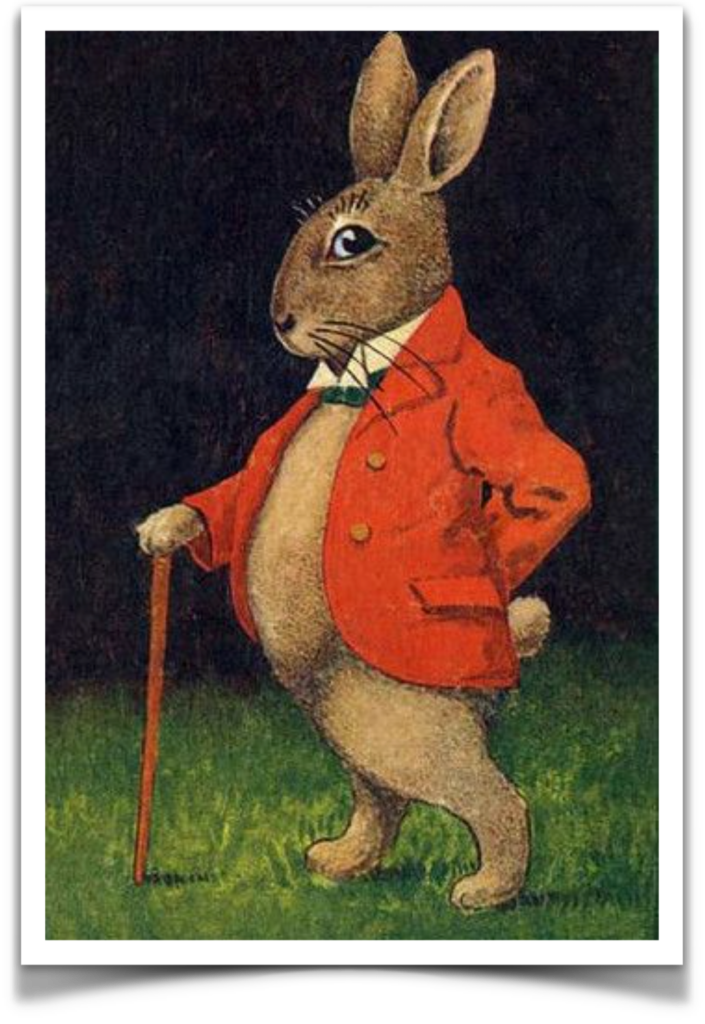
After the Barn Party
For a long time afterward, the party in the barn was known as “the party in the barn”. Anyone in the forest could say “remember when we went to the party in the barn,” and whoever they were talking to would say “yes, I remember the party in the barn. It was in the barn, and it was a party.”
Otter and Muskrat were the first ones to answer differently. One day when they were talking to Hare, he said “remember when we went to the party in the barn,” and instead of saying “yes, I remember the party in the barn,” Otter said “which one?”
At first, Hare thought it was because the party had been so long ago that Otter didn’t remember it, so he said “the one last week, Otter.”
But then Otter said “WHICH one last week?” Hare only knew about one party in the barn (it was known all around the forest as “the party in the barn”), so he thought one of two things must be happening. “Hmmm, one of two things must be happening,” he said to himself. “Otter might have gone to another party that I didn’t know about. But it’s more likely that this is just one of Otter’s jokes.”
So Hare turned to Muskrat and said “YOU remember the party in the barn, right Muskrat?”
Muskrat looked up from the book he was reading — he’d borrowed it from Beaver — and said “Never mind that, Hare. What’s gray, and wears glass slippers?”
“Huh?” asked Hare. “What are you talking about, Muskrat?”
“Cinderellaphant!” said Muskrat, who laughed so hard he fell over. He dropped his book, and Hare read the title: “1001 Elephant Jokes”. Hare groaned.
Otter shook Muskrat until he stopped laughing. “Muskrat,” he said, “I wish you’d borrowed that book before we went to the party in the barn!”
“AHA!” said Hare, “you DO know which party I’m talking about!”
Otter tried to look innocent. “Oh,” he said, “you were talking about THAT party?”
“Of course I was,” said Hare, “how many parties do you go to that happen in barns?”
“Oh it’s not that,” said Otter, “the real question is how many barns do I visit that have parties going on?”
“That’s the real question?” asked Hare, who didn’t see the difference.
Otter nodded — he was trying to nod wisely, but to Hare it looked more like he was trying to nod the way he thought somebody wise would nod.
“Otter,” said Hare, “who would you say is especially wise?”
“Muskrat,” said Otter. “He’s never serious.”
“Am so,” said Muskrat wisely.
“See what I mean?” said Otter. “That was a wisecrack if I ever heard one.”
“That’s my point,” said Muskrat wisely.
“Muskrat, can’t you just say something without trying to say it ‘wisely’?” asked Hare wearily.
“No,” said Muskrat wisely.
“Why not?” asked Hare wearily.
“That,” said Muskrat wisely, “is an excellent question. I don’t know, Hare. I might just as well ask you why you’re suddenly so tired.”
“You’re right,” said Hare wearily, “I am feeling tired. But not so tired that I don’t remember why I stopped by in the first place, before you and Otter started changing the subject.”
“Why DID you stop by?” asked Otter forgetfully.
“I stopped by to ask you…” Hare began forgetfully. “That is,” said Hare. “What I was going to say,” said Hare, forgetfully again. “Well tarnation, Otter, now I HAVE forgotten.”
“That’s too bad, Hare,” said Otter empathetically. Otter frowned. “Hare,” he said, “do you ever have a feeling that you don’t recognize the word for, so you’re not sure how you’re supposed to feel?”
“Sometimes,” said Hare imperiously. Then Hare said “Oh. I think I just did, Otter.”
“I, for one, always know how I feel,” said Muskrat mantologically.
“You do not,” said Otter. “You don’t even know what ‘mantologically’ means, Muskrat.”
“Do so,” said Muskrat. “I mean I didn’t then, but I knew I was going to, and sure enough, now I do.”
“Now you do what?” asked Hare, who was thoroughly confused.
“Now I know what ‘mantologically’ means,” said Muskrat prophetically. “It means the same as ‘prophetically.’ It’s when you know the future.”
“If you know the future,” said Otter, “then you can answer this, Muskrat. ‘What do you call an elephant with a carrot in each ear?’”
“Everybody knows that one,” said Hare. “You can call him anything you want; with carrots in his ears he can’t hear you!”
